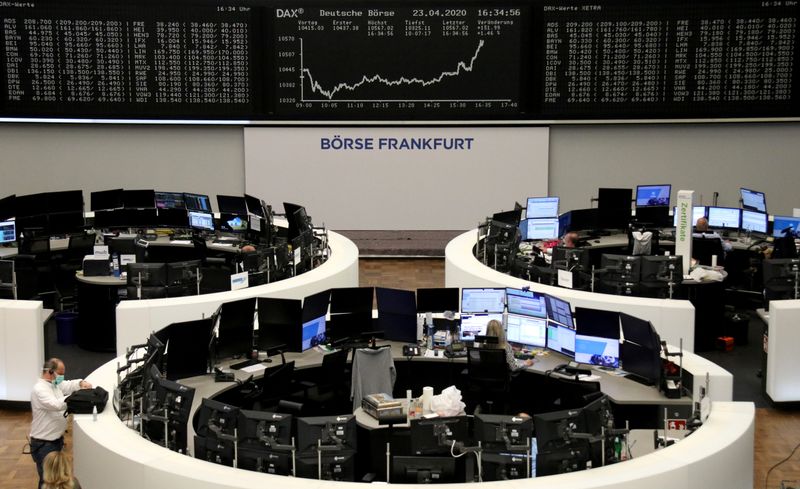By Dhara Ranasinghe and Ritvik Carvalho
LONDON (Reuters) - Market gauges measuring euro break-up risk emanating from Italy are starting to flicker, flagging the risk that another existential crisis may be building for the euro zone.
Hit hard by the coronavirus pandemic, Italy faces recession and massive debt increases. It's also been left disillusioned with the response from wealthier northern European states to calls for help.
On Thursday, EU leaders agreed a trillion-euro emergency fund to finance recovery from the pandemic but provided few details. That came after several refused to countenance issuing joint debt, which Italy has called for and a step that could reassure investors about its creditworthiness.
So with mainly the European Central Bank standing between Italy and spiralling borrowing costs, and some Italian politicians stoking opposition to the country's euro membership, the 'Quitaly' gauges are back on the radar.
INSURANCE?
ECB asset buying might limit the rise in Italy's borrowing costs but it hasn't eased concerns about its creditworthiness.
The cost of insuring Italian sovereign debt against default is almost back at levels seen in March before the ECB stepped in with emergency measures to halt a financial rout that was fuelling fears about the currency bloc's cohesion.
Richard McGuire, Rabobank's head of rates strategy, pointed to the widening gap between Italian five-year bond yields and credit-default swaps, as a sign the market is not fully reassured.
This gap rose to around 260 basis points this week https://fingfx.thomsonreuters.com/gfx/editorcharts/azgpomwblpd/index.html
McGuire said that reflected the pricing of some "fragmentation risk".
"As bold as the ECB action has been to help countries maintain access to financial markets, it does not address concern about solvency coming from the fiscal burden created by the coronavirus crisis", he added.
EURO WATCHING
The euro fell in the past week to a one-month low against the dollar (EUR=EBS), having shed 6% since early March. In this time, Italy's 10-year yield premium over Germany (DE10IT10=RR) has widened more than 50 basis points to 230 bps.
That inverse correlation between the euro and the spread is not normally observed but comes into play whenever Italy stresses are seen fuelling a threat to the single currency. It's been particularly noticeable since the start of April.
The 5-Star Movement, one of the parties in the ruling coalition in Rome, warned of government collapse if the bloc's ESM bailout fund were tapped because conditions attached would compromise Italy's sovereignty. The opposition League party went one step further, questioning whether Italy should stay in the EU at all.
(Graphic: Euro, Italian spread inverse correlation returns in coronavirus crisis IMAGE link: https://fingfx.thomsonreuters.com/gfx/mkt/qmyvmnmkgpr/Pasted%20image%201587735872600.png)
BUY DOLLARS
If Italy's place in the euro zone is at risk, its dollar bonds look a better investment than its euro debt.
If the debt ends up being restructured, bonds issued under New York law would offer better protection than those governed by Italian law. If Quitaly happens, the latter would be more vulnerable to redenomination into Italy's new currency.
So, yields on Italy's 15-year dollar bond
Italy's dollar debt similarly outperformed https://fingfx.thomsonreuters.com/gfx/editorcharts/bdwpkrgegvm/index.html during its 2018 squabble with the EU over spending policy.
